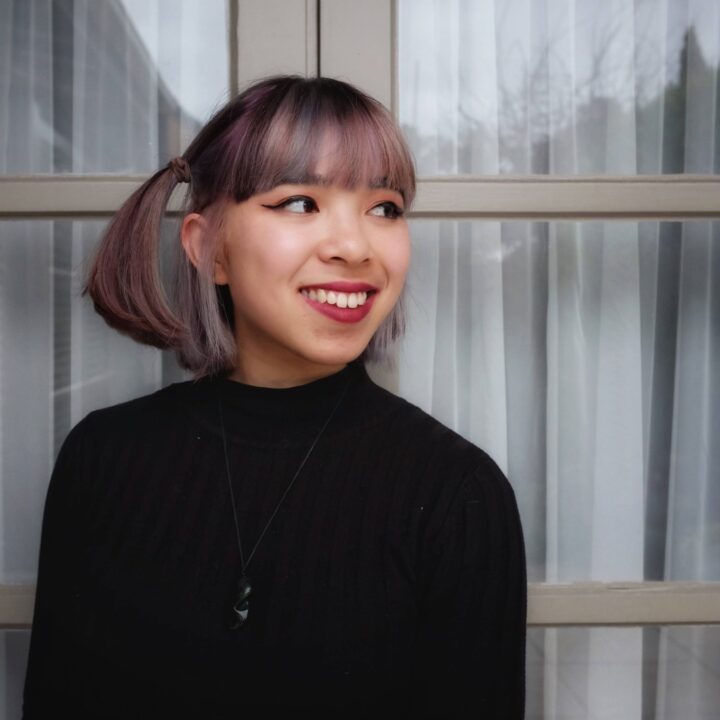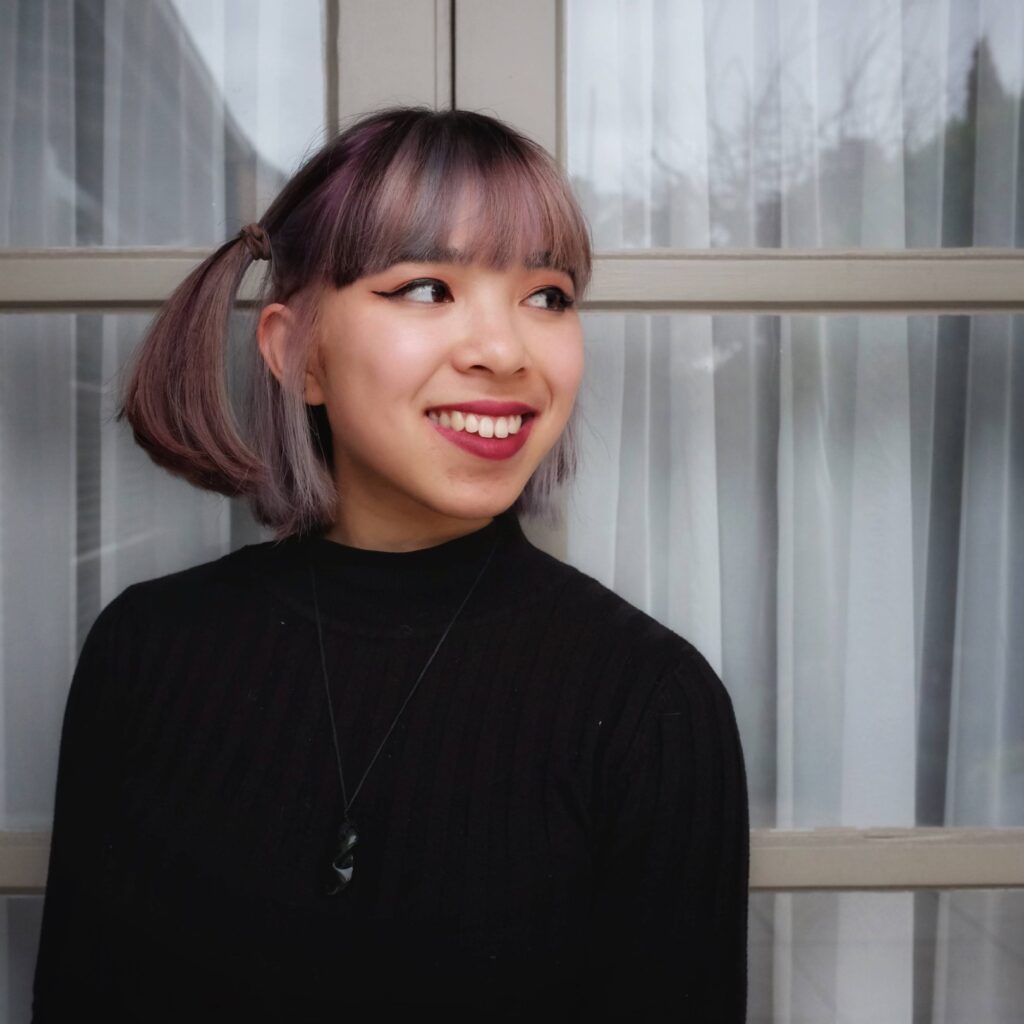Emma Ling Sidnam


Emma Sidnam is a Wellington-based writer and lawyer. As a fourth-generation Asian New Zealander, she is passionate about representation and ensuring that all voices are heard. She is a slam poet and her work has been published in the Spinoff, Capital, Newsroom and the anthologies A Clear Dawn and Middle Distance. Her debut novel Backwaters won the Michael Gifkins Prize and was longlisted for the Ockham New Zealand Book Awards in 2024.
Emma was Guest Fiction Writer in takakē 110, and spoke with Anna Scaife about her piece, writing and reading.
Your lovely piece ”Finger Patterns” in the current issue T110 centres around a musician who is no longer able to play. As I read, I found I could see many parallels with being a writer, and musing on what happens to the artist when they can no longer practice their art. Can you tell us a bit about your thought processes when writing this story?
To me, “Finger Patterns” is about purpose and the way we choose to live our lives. I’m a person often torn between wanting to do one thing brilliantly, and doing and trying a wide variety of things. I wrote “Finger Patterns” shortly after Backwaters (my first novel) was published. For a long time, I thought that publishing a novel and achieving my life dream was going to somehow be enough to sustain the rest of my life. And I’m not even saying that Backwaters is brilliant, because it already feels like a time capsule to my 22-year-old self, but I’m glad I was 24 when I realised that I can’t just do one thing with my life. I still dream of being a NYT bestselling author, but I’m also aware now that even if I somehow became one, I would still need to have a full, real life in other ways. The main character in “Finger Patterns” spends her life pursuing one singular dream. When she loses that, she loses herself. It’s through travel and meeting people that she learns that life is about more than ambition. It can be about experiences for their own sake, about inner peace and beauty and connection. I published Backwaters at a really odd moment in my life, because I’d just come home to New Zealand after a year abroad—and I really didn’t want to be back. Ironically, I started to look at travel as the purpose and goal of life—swinging from writing to travel. I think I just needed something to hold onto. In a way, I wrote “Finger Patterns” as an ode to travel and beauty as a counterpoint to ambition. Now, I think everything is about balance.
You have many strings to your writing bow: slam poetry, essayist, novelist. What is currently occupying your time?
“Finger Patterns” is part of a collection I’m working on that’s tentatively called ‘You Can’t Cheat in a Lucid Dream.’ I’ve loved making this collection because short stories are so fun to write. I can come up with weird and wonderful premises and I don’t have to commit to them for longer than a few thousand words.
I’m also in the first quarter of a new novel, a semi-psychological-thriller tentatively called ‘Shattered.’ It’s about a screenwriter who becomes obsessed with a French actress and tries to write herself into the actress’s life. I’ve always been drawn to obsession and writers and France so why not combine them all?
What do you think: writing is more about inspiration or perspiration? How do you keep going, either way?
This is a hard one. I think that starting to write is often about inspiration, but I think getting anywhere is about perspiration. Most people can write, but most people won’t finish projects because they won’t commit to them. I had to really decide that I wanted to be a writer in order to finish a project, and I hope to put out a book every 4–5 years for the rest of my life. My current writing schedule is 1–2 hours from Wednesdays to Fridays, and sometimes on weekends and Monday/Tuesday nights. So not heaps, but it’s regular enough to keep momentum going. In the past, I tried to commit to 300 or 500 words a day. Just enough to keep the wheels oiled.
What are you reading at the moment? Or, what was the last book you read that you really loved?
I’ve always got 2–3 books on the go. I’ve just finished No One is Talking About This by Patricia Lockwood—and I loved it. I was taken aback when I started it, because it’s written in these beautiful fragments which are also funny, sharp observations on society and internet culture. It just wasn’t what I was expecting. It’s also an emotional and politically relevant book. I fully endorse it. I’m also reading (slowly) Anna Karenina, which is one of those books I want to read before I die. It’s also one of my best friend’s favourite books, so I borrowed it off him. I’m enjoying it—particularly the writing style—but reserving judgment until I finish it. My favourite book so far this year is The Book of Form and Emptiness by Ruth Ozeki. It’s a deeply wonderful book—warm and empathetic, fast-paced and addictive, beautiful and wide-ranging in its look at the world. It’s a big book, but so easy to get through.
What advice would you give to someone just starting out on their writing journey?
It’s so cliched, but just write. Stop being a perfectionist because the only way to get better as a writer is to get over your fear of writing badly. We all write badly. The first, second, and third draft of your novel are probably going to be bad—but that’s fine! That’s what editing and editors are for. Just write—you have to get all the bad stuff out of your system before the good stuff starts to flow. Similarly, you can edit something bad until its good, but you can’t make something good from nothing (except on rare occasions where you’ll get a perfect first draft. . . . ).